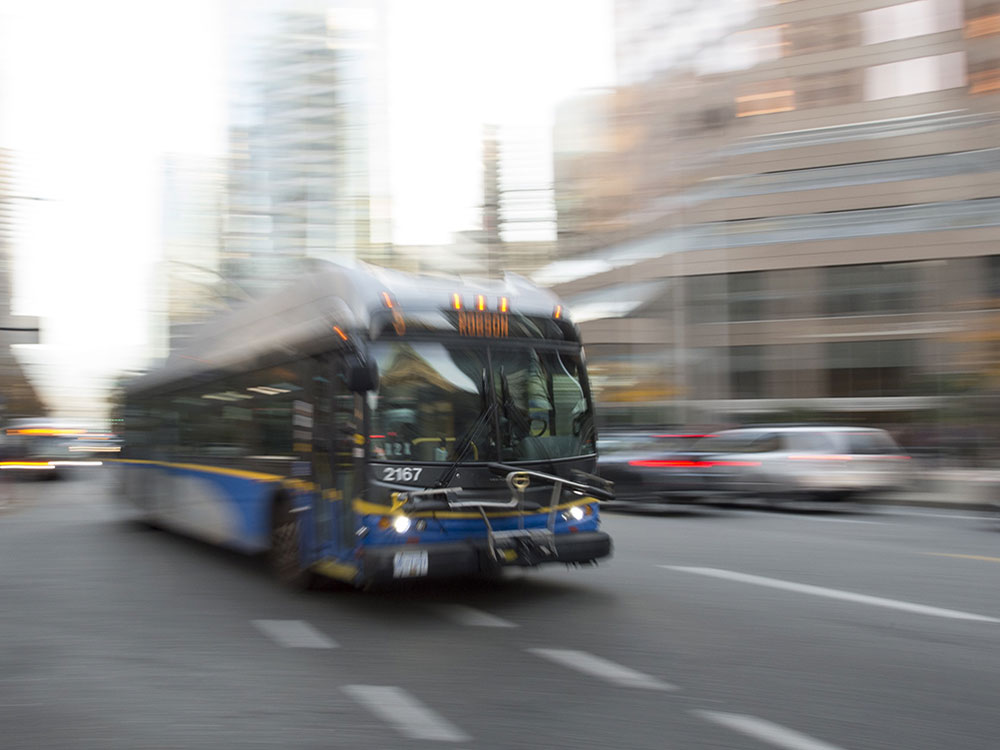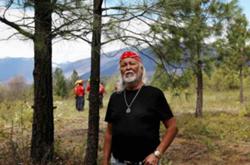A last-ditch negotiation has averted a strike that could have shut down Metro Vancouver’s public transportation system.
Canadian Union of Public Employees Local 4500 and Coast Mountain Bus Co. have reached a tentative deal ending a bitter weeks-long dispute that included a two-day strike that paralyzed the region’s bus system.
Another three-day strike had been set to start Saturday.
The union, which represents about 180 striking workers at Coast Mountain, said Thursday that it had accepted recommendations put forward by Vince Ready, a special mediator appointed by the provincial government.
Coast Mountain Bus Co., which operates buses in the region on behalf of TransLink, announced shortly afterwards that it would follow suit.
Terms of the deal were not released. The parties said they would move to sign a memorandum of agreement and the union’s members will still have to vote on whether to accept it.
CUPE 4500 spokesman Liam O’Neill said in a prepared statement that the deal was an acceptable compromise for the union’s members, who voted to strike over issues mostly related to pay and high rates of overtime.
O’Neill said the union saw “no reason to leave transit users in a state of uncertainty.”
“For the sake of transit users, and the ongoing relationship between CUPE 4500 members and Coast Mountain, let us put this dispute behind us,” O’Neill said.
In his statement, Coast Mountain Bus Co. general manager Michael McDaniel stressed the consequences public transit strikes had for commuters. TransLink estimates more than 300,000 riders take the bus daily.
“As the Special Mediator noted, labour disruptions in the Lower Mainland‘s public sector transportation system lead to significant public hardship and negative economic impacts,” McDaniel wrote.
At one point, the strike threatened to paralyze not just buses but the entire Metro Vancouver public transportation system. That led to legal and political debates about how those services should be declared “essential” and if workers’ Charter rights to go on strike should be limited — questions that are sure to re-emerge in similar disputes.
CUPE 4500 had applied to the BC Labour Relations Board for permission to picket a number of other employers in the region’s transit system, including TransLink and its subsidiaries that run the SkyTrain and West Coast Express, which would have effectively frozen almost all public transportation services in the region. TransLink estimated last year that there were roughly 1.1 million boardings on that system on a given weekday.
The board never ruled on whether they could picket such locations, and any decision on that would now be moot.
Coast Mountain Bus Co. and other related employers filed applications to the labour board Wednesday, arguing that their services should be deemed “essential” under law, which in turn would limit the scope and duration of strikes.
Ilan Burkes, a lawyer for Coast Mountain, argued in his application that halting bus service would prevent health-care workers from getting to work, hinder patients seeking medical care and force commuters to use services like taxis that are “prohibitively expensive for a large proportion of the public.”
Burkes asked the board to declare that employees must work enough to “permit bus services to continue to be operated at levels that prevent risk to the health, safety and welfare of residents of British Columbia.”
Brandon Hillis, a lawyer representing the TransLink subsidiary that runs the SkyTrain, submitted his own application on Wednesday seeking a similar designation for all the various transit employers CUPE 4500 had applied to picket.
Those arguments, like CUPE 4500’s, were never heard by the board.
But they drew a sharp rebuke from Carmela Allevato, a lawyer for the union, who accused the employers of stepping on a political live wire.
“We’re very concerned that this process can turn into a political battle rather than dealing with what’s really the issue, which is the right of workers to put pressure on their employer to settle the strike,” Allevato said in a hearing on Wednesday.
The Opposition BC United party had pressured the provincial government to intervene in the dispute. In an interview Wednesday, before the deal was reached, transportation critic Trevor Halford argued workers’ rights to walk off the job should be weighed against the vital role public transit plays.
“At the end of the day, workers need to be treated fairly and bargaining needs to be done in good faith... but we also need to understand the fact that people, including our frontline responders, rely on public transit,” Halford said.
B.C. Labour Minister Harry Bains, who is legally responsible for essential service designation, had rejected the call.
He said he would leave the question to the labour board, which would recommend what level of service — if any — was “essential.” ![]()
Read more: Transportation, Labour + Industry

















Tyee Commenting Guidelines
Comments that violate guidelines risk being deleted, and violations may result in a temporary or permanent user ban. Maintain the spirit of good conversation to stay in the discussion and be patient with moderators. Comments are reviewed regularly but not in real time.
Do:
Do not: